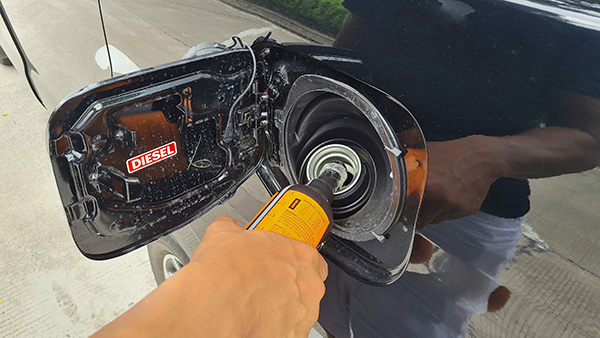
Diesel fuel additives are a hot topic among car enthusiasts and professionals alike. If you drive a diesel vehicle, you may have heard conflicting advice on whether to use these additives. Are they worth the investment? Can they truly enhance your engine's performance and longevity? Let's explore the science, benefits, and potential drawbacks of diesel fuel additives to help you make an informed decision.
What Are the Diesel Fuel Additives
Diesel fuel additives are chemical compounds added to diesel fuel to improve its performance. They can address various issues, such as poor fuel quality, engine deposits, and cold weather challenges. These additives come in different formulations, each designed to target specific problems. Common types include cetane boosters, anti-gel agents, detergents, and lubricity enhancers. But how do these additives work, and are they necessary for your vehicle?
The Benefits of Diesel Fuel Additives
Diesel fuel additives can offer several advantages, depending on your vehicle's needs and operating conditions. Here are some of the most notable benefits:
Improved Fuel Efficiency
Some additives are designed to increase the cetane number of diesel fuel. Higher cetane numbers can lead to more complete combustion, improving fuel efficiency and reducing emissions. If you're looking to get the most mileage out of your diesel, cetane boosters might be worth considering.
Enhanced Engine Performance
Additives with detergent properties can help clean the fuel injectors and other engine components. Over time, diesel engines can accumulate deposits that hinder performance. Regular use of detergent additives can keep your engine running smoothly by preventing and removing these deposits.
Cold Weather Protection
Diesel fuel can gel in extremely cold temperatures, causing starting and operating problems. Anti-gel additives prevent this by lowering the fuel's pour point, ensuring your engine starts and runs smoothly even in harsh winter conditions.
Lubricity Improvement
Modern ultra-low sulfur diesel (ULSD) fuel has reduced lubricity, which can lead to increased wear on fuel system components. Lubricity additives restore the fuel's lubricating properties, protecting your engine and extending its lifespan.
Corrosion Protection
Some additives contain anti-corrosion agents that protect the fuel system from rust and corrosion. This is especially important if your vehicle is exposed to moisture or if it sits unused for extended periods.
Potential Drawbacks of Diesel Fuel Additives
While diesel fuel additives offer several benefits, they are not without potential downsides. Here are a few considerations to keep in mind:
Cost
Diesel fuel additives can be expensive, and the costs can add up over time, especially if you use them regularly. It's essential to weigh the benefits against the cost to determine if they are a worthwhile investment for your vehicle.
Overuse
Using too many additives can potentially harm your engine. Always follow the manufacturer's recommendations for dosage to avoid any adverse effects. Overuse can lead to injector fouling, increased emissions, and other engine issues.
Inconsistent Quality
Not all diesel fuel additives are good for your vehicle. The market is flooded with products of varying quality, and it can be challenging to choose the right one. Opt for reputable brands and seek professional advice to ensure you're using a high-quality product.
When Should You Use Diesel Fuel Additives?
Determining whether to use diesel fuel additives depends on several factors, including your driving habits, vehicle age, and the quality of diesel fuel available in your area. Here are some scenarios where additives might be beneficial:
Frequent Short Trips
If you primarily drive short distances, your engine may not reach optimal operating temperatures, leading to incomplete combustion and deposits. Additives with detergents can help keep your engine clean.
Cold Climates
If you live in an area with harsh winters, anti-gel additives are essential to prevent fuel gelling and ensure reliable starts.
Older Vehicles
Older diesel engines may benefit from additives that enhance lubricity and clean injectors, helping to maintain performance and extend their lifespan.
Variable Fuel Quality
If you're unsure about the quality of diesel fuel available in your area, additives can help ensure consistent performance and protect your engine.
Making the Right Choice
Choosing the right diesel fuel additive involves understanding your vehicle's needs and selecting a product that addresses those specific requirements. Consult your vehicle's manual and seek advice from professionals to determine the best additive for your engine. Remember, moderation is key—follow the recommended dosage and avoid overusing additives.
Ensure your diesel engine's longevity with professional repairs and maintenance from Quality Tune-Up Auto Care. Schedule an appointment now and keep your vehicle in top shape.